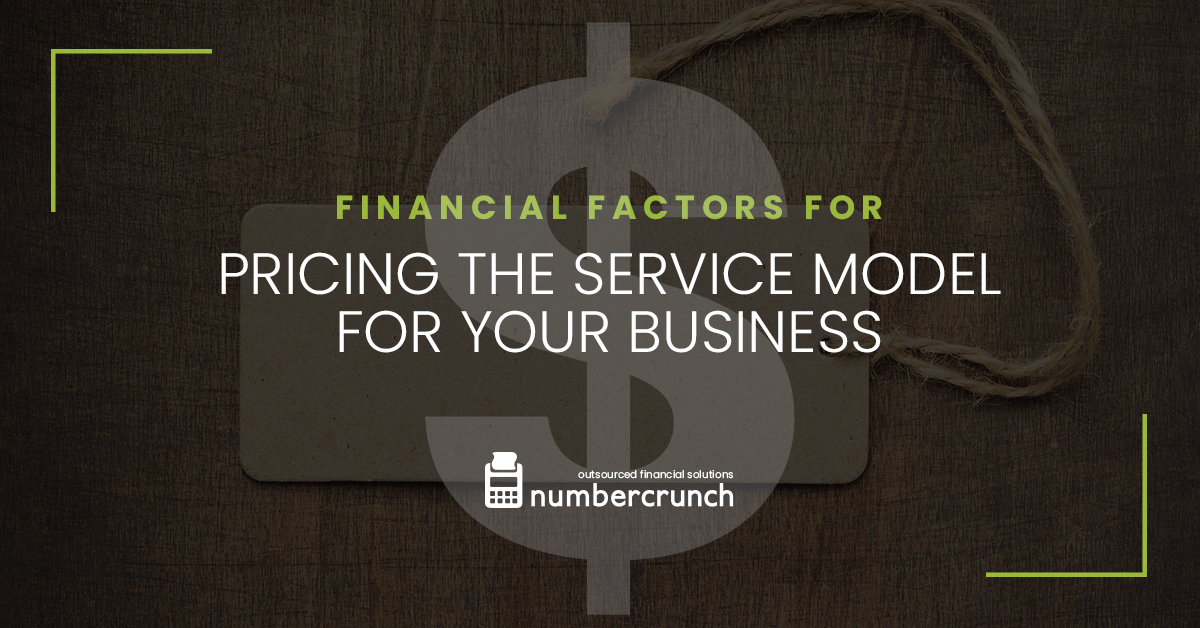Ever wonder if your services are priced correctly for your business? If you own a service-based business, here are 6 tips to pricing your services from a financial perspective.
We mention financial perspective because pricing is one of the 4 Ps of marketing. The concept of the 4 Ps of marketing has been around since the 1950’s and refers to the interaction of product, price, place and promotion when it comes to the key factors that are involved with marketing a product or service. Generally speaking I tend to defer to marketing first when it comes to pricing strategies but equally important is a financial perspective.
Here we go with the top financial factors for pricing the service model for your business.
1. Profit
Profit is extremely important. Sorry – profitability is not very sexy these days but if you are a project based service company you are seriously cutting off your potential to access growth capital if you are not profitable. Banks do not ‘fund losses’ – in other words any time you are securing growth capital you need to convince the bank that it is to fund growth and if your business is not currently profitable that is an uphill battle.
2. Growth
Nothwithstanding #1, growth can be the acceptable exception to profitability. To grow a service based business you need to invest in sales and marketing initiatives which will erode profits in the short-term. This is acceptable as long as you have a clear sight to profitability within 12-18 months and can demonstrate that the only reason you are not profitable is that you intentionally started to spend money to grow your revenues and the profits will soon be following.
3. Target profitability
How much profit do you want? That’s up to you but if you haven’t picked a number 20% net profit is a decent target. To be clear we refer to ‘net profit’, not ‘gross profit’. Gross profit is the difference between revenues and your direct variable costs. Net profit includes all other business operating expenses and overhead costs. In order to generate a 20% net profit margin you likely need to be hitting a 50% gross margin. That means a 100% markup on your loaded labour costs or in other words you should charge 2X your labour costs.
4. Pricing evolution
If you aren’t currently charging 2X your labour costs you are not alone. It is very common for start up service businesses to charge less than this. When you are new you may not have the clout to command your worth so you’ll undercharge in order to win business. This can be helpful for launching but over time you need to evolve your pricing to ensure it supports a sustainable and profitable business model. Once you have secured some satisfied clients and established a reputation for quality or expertise you can and should move your price upstream to ensure you are building a sustainable successful business.
5. Utilization
Consider your utilization – billable vs. non-billable time. This can vary by company. CEOs tend to believe their staff are billable more than they are. Don’t speculate – check timesheets and confirm how your staff are billing. A long time ago I established a framework at a software development firm that was based on 70%, 20%, 10%. 70% of time was billable, 20% was administrative and training and 10% was leave (vacation, sick). For project based companies that ensure projects are completed on time this may apply, but honestly it is worth it to confirm what utilization rate your business is working from.
6. Testing
Test it out. If you aren’t losing 20% of deals on price you are likely leaving money on the table. Keep track of your win/loss ratio. Also don’t be afraid to increase pricing for current customers. You can often increase pricing for current customers by 25% before you start impacting retention. Just be sure to give ample notice and take the time to explain why the pricing increase is necessary.
Learn more about how numbercrunch can help with your financials as service-based businesses.
Author: Susan Richards










